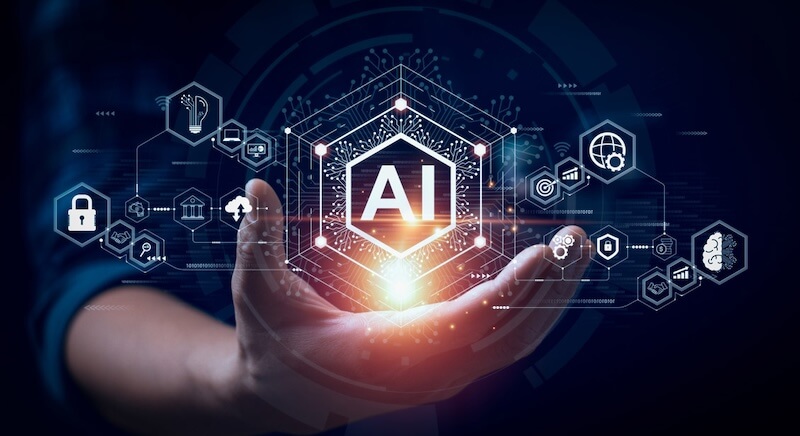Artificial intelligence (AI) is rapidly evolving, and its potential to reshape mobile technology by 2035 is immense. While it's difficult to predict the future with certainty, examining current trends and expert opinions provides valuable insights into how AI could disrupt the iPhone and the broader mobile landscape.
AI-Driven Features and Capabilities
AI is already enhancing smartphones with features like predictive text, facial recognition, and camera enhancements. By 2035, these capabilities will be significantly more advanced. Expect to see:
- Personalized Experiences: AI algorithms will learn user preferences and adapt device functionality accordingly. This includes predictive text, smart content curation, and intelligent task automation.
- AI-Powered Assistants: Mobile assistants will be standard in every app, predicting actions, managing tasks, and offering proactive suggestions based on user habits. These assistants will understand not just what you say, but also your emotional state and immediate needs.
- Contextual Awareness: Smartphones will gain true contextual awareness, understanding your emotional state, physical environment, and immediate needs for more natural interactions.
- Enhanced Security: AI will enable more secure authentication methods and protect user data.
- AI-powered health monitoring: Smartphones may transform into sophisticated health monitoring tools capable of tracking and analyzing various aspects of your wellbeing.
The Potential Demise of the iPhone
The iPhone, while currently a dominant force, may not be immune to disruption. Apple's Senior Vice President of Services, Eddy Cue, has suggested that AI advancements could make iPhones obsolete within the next decade. He noted that technological shifts create opportunities for new entrants and true competition.
Several factors contribute to this possibility:
- New Device Ecosystems: AI could lead to new types of devices or interfaces that replace smartphones. These might include advanced wearables, mixed reality headsets, or ambient AI assistants.
- Wearable Technology: Wearable technology, especially with voice-first AI computing, could benefit from AI-driven shifts. Smartwatches, earpieces, and smart glasses could replace the need for a single, handheld device.
- AI-Powered Agents: Self-directing AI-powered agents could complete complex tasks directly accessible through mobile devices.
- The Internet of Agents: By 2035, AI may operate as a distributed network of autonomous agents, underpinning industries and society itself.
Challenges and Considerations
Integrating AI into mobile technology is not without its challenges:
- Data Quality and Quantity: AI models require vast amounts of high-quality data to function effectively.
- Resource Intensity: AI implementation can be resource-intensive, requiring substantial computational power.
- Ethical Concerns: The use of AI raises ethical concerns, particularly regarding bias in algorithms, privacy, and security.
- Security Risks: The expansion of AI creates new entry points for exploitation. Attacks on AI agents may resemble social engineering.
- Over-reliance on Technology: As AI-powered apps become more capable, there's a risk that we could become overly reliant and lose some of our own skills.
The Rise of AI-Capable Smartphones
Despite the potential for disruption, smartphones are expected to evolve with AI. Canalys projects that 54% of the smartphone market will be AI-capable by 2028. These AI-capable smartphones will feature dedicated AI hardware and be able to efficiently execute large generative AI models on-device.
Ethical Considerations and Regulations
As AI becomes more integrated into society, regulations and ethical standards are becoming increasingly important. Initiatives like the EU AI Act and the Blueprint for an AI Bill of Rights (US) aim to set clear guidelines for AI development and deployment. By 2035, these regulations and collaborative efforts will likely define the operational boundaries for AI agents, helping ensure they remain aligned with societal values and ethical principles.
Conclusion
By 2035, AI has the potential to significantly disrupt the mobile technology landscape and the iPhone's dominance. While the exact form this disruption will take is uncertain, AI-driven features, new device ecosystems, and ethical considerations will play crucial roles in shaping the future of mobile technology. Whether the iPhone becomes obsolete or evolves to integrate AI seamlessly, the mobile experience in 2035 will be unrecognizable from what we know today.















